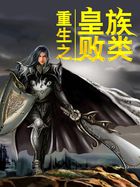BY primary groups I mean those characterized by intimate face-to-face association and cooperation. They are primary in several senses, but chiefly in that they are fundamental in forming the social nature and ideals of the individual. The result of intimate association, psychologically, is a certain fusion of individualities in a common whole, so that one's very self, for many purposes at least, is the common life and purpose of the group. Perhaps the simplest way of describing this wholeness is by saying that it is a "we"; it involves the sort of sympathy and mutual identification for which "we" is the natural expression. One lives in the feeling of the whole and finds the chief aims of his will in that feeling.
It is not to be supposed that the unity of the primary group is one of mere harmony and love. It is always a differentiated and usually a competitive unity, admitting of self-assertion and various appropriative passions; but these passions are socialized by sympathy, and come, or tend to come, under the discipline of a common spirit. The individual will be ambitious, but the chief object of (24)his ambition will be some desired place in the thought of the others, and he will feel allegiance to common standards of service and fair play. So the boy will dispute with his fellows a place on the team? but above such disputes will place the common glory of his class and school.
The most important spheres of this intimate association and cooperation梩hough by no means the only ones梐re the family, the play-group of children, and the neighborhood or community group of elders. These are practically universal, belonging to all times and all stages of development;and are accordingly a chief basis of what is universal in human nature and human ideals. The best comparative studies of the family, such as those of Westermarck [1] or Howard, [2] show it to us as not only a universal institution, but as more alike the world over than the exaggeration of exceptional customs by an earlier school had led us to suppose. Nor can any one doubt the general prevalence of play-groups among children or of informal assemblies of various kinds among their elders. Such association is clearly the nursery of human nature in the world about us, and there is no apparent reason to suppose that the case has anywhere or at any time been essentially different.
As regards play, I might, were it not a matter of common observation, multiply illustrations of the universality and spontaneity of the group discussion and cooperation to which it gives rise. The general fact is that children, especially boys after about their twelfth year, live in fellow-(25)-ships in which their sympathy, ambition and honor are engaged even more, often, than they are in the family. Most of us can recall examples of the endurance by boys of injustice and even cruelty?
rather than appeal from their fellows to parents or teachers -- as, for instance, in the hazing so prevalent at schools, and so difficult, for this very reason, to repress. And how elaborate the discussion, how cogent the public opinion, how hot the ambitions in these fellowships.
Nor is this facility of juvenile association, as is sometimes supposed, a trait peculiar to English and American boys; since experience among our immigrant population seems to show that the offspring of the more restrictive civilizations of the continent of Europe form self-governing play-groups with almost equal readiness. Thus Miss Jane Addams, after pointing out that the "gang" is almost universal, speaks of the interminable discussion which every detail of the gang's activity receives, remarking that "in these social folk-motes, so to speak, the young citizen learns to act upon his own determination." [3]
Of the neighborhood group it may be said, in general, that from the time men formed permanent settlements upon the land, down, at least, to the rise of modern industrial cities, it has played a main part in the primary, heart-to-heart life of the people. Among our Teutonic forefathers the village community was apparently the chief sphere of sympathy and mutual aid for the commons all through the "dark" and middle ages, and for many purposes it remains so in rural districts at the present day.
In some countries we still find it with all its ancient vi-(26) tality, notably in Russia, where the mir, or self-governing village group, is the main theatre of life, along with the family, for perhaps fifty millions of peasants.
In our own life the intimacy of the neighborhood has been broken up by the growth of an intricate mesh of wider contacts which leaves us strangers to people who live in the same house. And even in the country the same principle is at work, though less obviously, diminishing our economic and spiritual community with our neighbors. How far this change is a healthy development, and how far a disease, is perhaps still uncertain.
Besides these almost universal kinds of primary association, there are many others whose form depends upon the particular state of civilization;the only essential thing, as I have said, being a certain intimacy and fusion of personalities. In our own society, being little bound by place, people easily form clubs, fraternal societies and the like, based on congeniality, which may give rise to real intimacy. Many such relations are formed at school and college, and among men and women brought together in the first instance by their occupations梐s workmen in the same trade, or the like.
Where there is a little common interest and activity, kindness grows like weeds by the roadside.
But the fact that the family and neighborhood groups are ascendant in the open and plastic time of childhood makes them even now incomparably more influential than all the rest.















